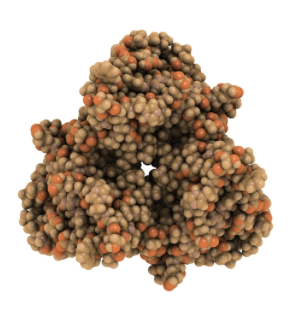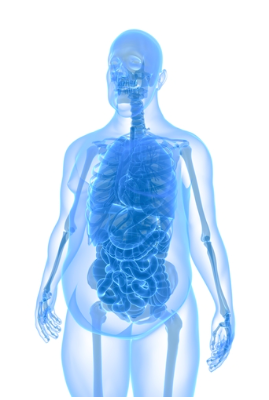Do I NEED Carbs Post-Workout?
Post-training is your most insulin sensitive time of day and the time when your body can use carbs the most ...

Post-training is your most insulin sensitive time of day and the time when your body can use carbs the most ...
Energy expenditure can vary greatly from large muscle groups to small muscle groups. This is evident easily by the poundage ...
Question: “What are neurotransmitters and why are they important? How can I optimize them to improve my training?” Your neurotransmitters ...
From boosting testosterone production & supporting lean muscle growth, to optimizing joint health & immune function, getting enough of this ...
By Roland Pankewich Fat loss is the ever-elusive conquest of anyone and everyone who is into health and fitness. Observationally ...
One of several so called, “super-supplements”, to have hit shelves over recent decades is glutamine, the most abundant amino acid ...
For decades, medical experts and enthusiasts have been nay saying the use of fats. This approach is a result of ...
Is marketing B.S & deceptive food labelling costing you your health & slamming the breaks on your progress? We give ...
When starting a diet, have you ever wondered why exactly hunger and cravings suddenly sky rocket? Obviously a reduced food ...
Building the Perfect Beast - How Our Fast and Slow Twitch Muscle Fibers Determine Athletic Success...
You often hear the same questions no matter what gym setting you are in. What’s your max bench? What pre-workout ...
Why Should You be eating Resistant Starch? RS is a starch that when digested in the large intestine, leads to ...
 A new year has begun and now is the time to carve off that holiday excess. As fans of this site will know, building a beach or stage-worthy physique is largely dependent upon a balanced diet and an ability to adjust exercise to ensure fat is burned and muscle is spared. However, what many aspiring fitness devotees miss is the vastly underrated role that the hormone leptin plays in encouraging dietary diligence and promoting fat loss.
A new year has begun and now is the time to carve off that holiday excess. As fans of this site will know, building a beach or stage-worthy physique is largely dependent upon a balanced diet and an ability to adjust exercise to ensure fat is burned and muscle is spared. However, what many aspiring fitness devotees miss is the vastly underrated role that the hormone leptin plays in encouraging dietary diligence and promoting fat loss.
What is leptin?
Described as the satiety, starvation, fat, or obesity hormone, leptin regulates the amount of fat that is stored in fat cells and other areas of the body (1, 4). Regulating our metabolism by modulating the sensation of hunger and adjusting energy expenditure, this master hormone, along with a complex network of other regulatory hormones, is essential for fat burning efficiency (4, 13).
Energy balance is the body’s process of adjusting hunger and activity to maintain health, weight, and optimal function. It is leptin’s job to communicate the nutritional status between body and brain to the cells and regulatory pathways of the body. In other words, leptin is used by the fat cells to inform the brain that we have enough stored energy, which influences how our body responds to the foods we eat and how our brain regulates hunger (4, 7).
When all is well, leptin prevents overeating, promotes energy balance, helps to reduce excessive blood sugar, and helps prevent obesity (11). However, problems can arise when leptin is either under or over produced (6).
A closer look
 Leptin has the potential to do great good or tremendous harm. How it exerts its influence is largely in our hands. Leptin is secreted primarily from white adipose tissue and to a lesser extent from brown adipose tissue, where it is released into the blood and travels to the arcuate nucleus of the hypothalamus to activate leptin receptors (2, 7). Its secretion varies in response to the amount of food we consume and our levels of body fat(5). Acting on the receptors in the hypothalamus, leptin inhibits hunger by negating the effects of the chemical substances neuropeptide Y and anandamide, both potent hunger promoters, while boosting the synthesis of α-MSH, a hunger suppressant (6, 7, 13). By eating enough to promote energy balance, we remain fit, healthy, and performing at our best. However, excessive or inadequate leptin levels can have extremely negative metabolic consequences.
Leptin has the potential to do great good or tremendous harm. How it exerts its influence is largely in our hands. Leptin is secreted primarily from white adipose tissue and to a lesser extent from brown adipose tissue, where it is released into the blood and travels to the arcuate nucleus of the hypothalamus to activate leptin receptors (2, 7). Its secretion varies in response to the amount of food we consume and our levels of body fat(5). Acting on the receptors in the hypothalamus, leptin inhibits hunger by negating the effects of the chemical substances neuropeptide Y and anandamide, both potent hunger promoters, while boosting the synthesis of α-MSH, a hunger suppressant (6, 7, 13). By eating enough to promote energy balance, we remain fit, healthy, and performing at our best. However, excessive or inadequate leptin levels can have extremely negative metabolic consequences.
Leptin resistance
Leptin levels increase with increased fat mass, which means the more obese we become the more leptin we produce in an attempt to curb appetite and negate further fat storage (4, 13). Whenever we eat more than is required to sustain a certain amount of body fat, our fat cells’ struggle to grow larger or increase in number. The stress response resulting from the consumption of calories in excess of our fat cells’ storage capacity leads to cellular inflammation, ectopic fat storage (the storage of fat in internal organs, muscle, and arteries), and increased leptin levels (13). Such stress-induced leptin secretion is necessary means prevent the excessive inflammation brought about by overeating and ectopic fat storage (2). (chronic inflammation has been implicated in everything from heart disease, to cancer)
Furthermore, a persistent elevation in leptin levels, beyond those needed to prevent overconsumption in the short term, may ultimately result in leptin resistance. In addition to overeating, contributing factors for leptin resistance include an abundance of simple carbs (particularly fructose), consistently high insulin levels, over or under training, poor sleep habits (3, 8), high stress levels, and perceived emotional stress (11). The major problem with leptin resistance is that the afflicted (usually the obese, those with damaged metabolisms, or those with endocrine problems) are no longer encouraged to ditch the dessert despite their high leptin levels; such individuals are actually encouraged to eat more via other mechanisms.
dessert despite their high leptin levels; such individuals are actually encouraged to eat more via other mechanisms.
Leptin resistance is not an issue of production but rather efficacy. Leptin resistance is marked by leptin’s inability to produce its desired effects, which would, under normal circumstances, stimulate satiety. Rather than feeling full, leptin resistant individuals are constantly hungry despite a high caloric intake. Since the body never feels full or adequately nourished, the leptin resistant individual is encouraged to eat more, and a vicious cycle of engorgement continues unabated.
Furthermore, leptin resistance triggers multiple mechanisms that thwart fat burning, and unless the problem is addressed, obesity is the outcome (5, 7, 9). Among these mechanisms is the formation of reverse T3 (a hormone produced naturally in response to a biological need to conserve energy, such as when one is acutely sick, which stops the thyroid hormones from stimulating the metabolism (12). A sluggish metabolic rate coupled with a compulsion to gorge in an unyielding manner makes weight loss almost impossible
How to address leptin resistance
Aside from rationalizing the problem and willing oneself to abstain from the excessive consumption of calories (difficult when faced with your own biology), the following steps can be taken to both prevent and address leptin resistance.
Leptin insufficiency
 Eating too few calories, however, as in the case of dieting, can also create a unique set of problems. Non-sustainable, ultra low calorie dieting can interfere with normal leptin secretion and result in excessive fat storage (5). In consuming a low calorie diet we encourage the depletion of fat from fat cells, certainly a good thing. But in doing so, we also decrease the amount of leptin that being produced (4). Once leptin levels fall below a certain threshold, the brain assumes the individual is starving. In turn the individual is encouraged to eat more to restore energy balance and to drive leptin levels back to the normal range. To restore leptin levels to baseline, the vagus nerve is stimulated (4). Vagus nerve stimulation creates feelings of intense hunger to ensure energy levels are restored and fat stores are repleted. This is one reason why extreme diets do not work and often lead to binging and rebounding, and also the reason why many bodybuilders employ periodic refeeds (to stimulate the metabolism, which involves leptin stimulation).
Eating too few calories, however, as in the case of dieting, can also create a unique set of problems. Non-sustainable, ultra low calorie dieting can interfere with normal leptin secretion and result in excessive fat storage (5). In consuming a low calorie diet we encourage the depletion of fat from fat cells, certainly a good thing. But in doing so, we also decrease the amount of leptin that being produced (4). Once leptin levels fall below a certain threshold, the brain assumes the individual is starving. In turn the individual is encouraged to eat more to restore energy balance and to drive leptin levels back to the normal range. To restore leptin levels to baseline, the vagus nerve is stimulated (4). Vagus nerve stimulation creates feelings of intense hunger to ensure energy levels are restored and fat stores are repleted. This is one reason why extreme diets do not work and often lead to binging and rebounding, and also the reason why many bodybuilders employ periodic refeeds (to stimulate the metabolism, which involves leptin stimulation).
In conclusion
In eating sufficient calories to sustain our various metabolic processes we secrete leptin which informs the brain that there is enough stored fat, which in turn informs the body to burn energy at a normal rate, and eat food in normal amounts (10). We have seen how becoming overweight by overeating may cause a significant elevation of leptin, which given enough time, can lead to leptin resistance. We have also seen how inadequate leptin levels can lead to trouble when dieting and how extreme dieting is the biggest culprit. From this, it is clear that leptin is a hormone that is not to be trifled with, and one that that should definitely be under the radar if fitness is your goal.
References